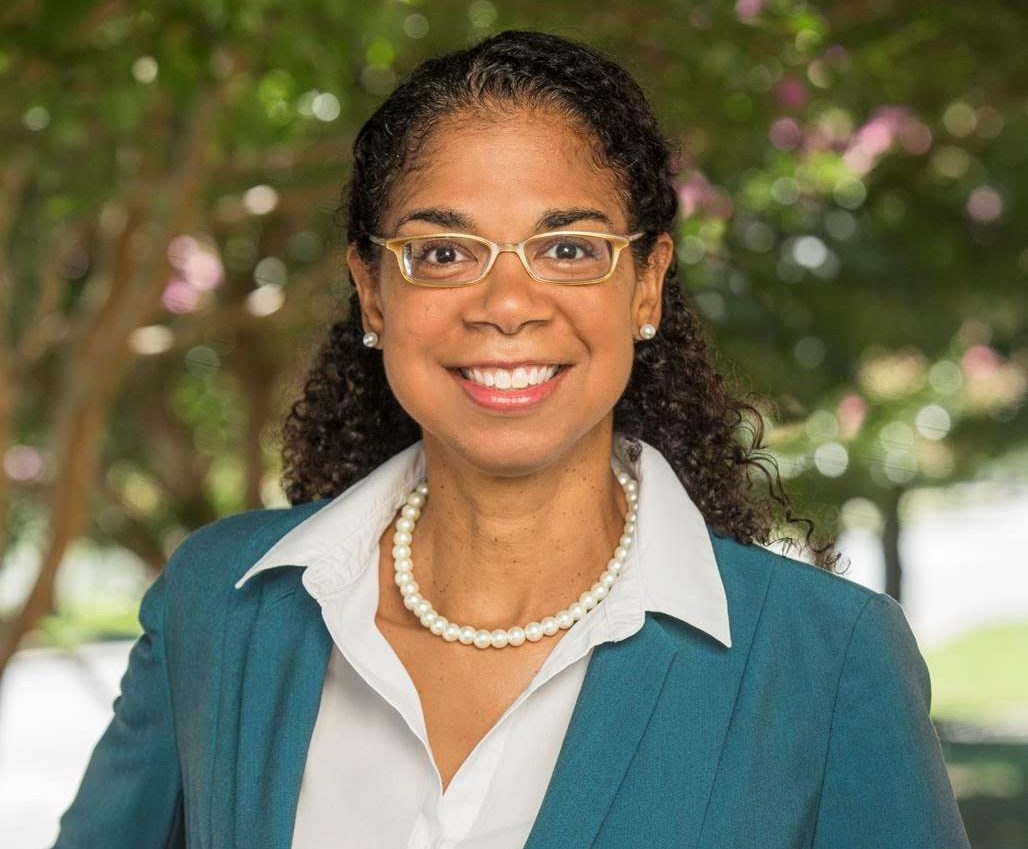RECENT COMMENTS

Interview: School Board candidate Nadine Marsh-Carter
7th District School Board candidate Nadine Marsh-Carter is a 40-year resident of Church Hill, with a career in child advocacy including serving on the board for CHAT, volunteer work for SCAN and CASA, and serving as the president of the Children’s Home Society. She was recently endorsed by the REA.
I caught up last week with Nadine Marsh-Carter at one of our local bakeries for 5 questions.
— ∮∮∮ —
On paper, your resume looks fantastic. You have a stellar list of past accomplishments: you have a BA and a law degree, you’re a former PTA president… Can you tell me about your work at the Children’s Home Society?
It’s a state-run adoption agency whose focus is serving vulnerable children, which means children who are either are abused or neglected, in the foster care system, or have been abandoned by their families. Basically children who are difficult to place by other standards, and we go out and recruit and train families to create safe places where these children thrive.
The reason why that’s important, is because in my work, I see everyday how children with the most difficult starts, if you give them the right supports they can thrive. They can overcome. And our school system seems to be missing the fact that if you’re strategic in how you address the young people you can change the trajectory of their lives, and that’s part of what I think eduction is – it’s the great equalizer. It gives young people a chance to break cycles of poverty.
— ∮∮∮ —
You have a famous father. How has his work shaped your work?
What has really impacted me the most is really his commitment to the community, and his belief in the underdog, those who don’t have a voice, and being a voice for the voiceless. And his real genuine belief in the political process as ultimately getting people to a better place.
My dad is well known for his politics, for me though, other leaders include my grandfather who was a rock in the community. That’s what I’m really proud of. My grandfather was Vernon Harris, of the Harris Clinic. He didn’t make the bottom line, he was there on the front lines of the community changing lives quietly.
That’s my motivation… my dad’s work to advocate for the voiceless, my grandfather’s willingness to give back in a quiet way and touch lives…
And my mom had a dental practice in the East End for many years at 29th and Q. And people now say, “your mom fixed my teeth for a bushel of greens” or whatever it was, and that’s what really inspires me, those quiet leaders who don’t get a lot of visibility but are changing lives.
— ∮∮∮ —
Why make the jump to public office?
My whole career has been child advocacy, so this is sort of a logical next step.
Part of it is that I have been very disappointed that our school system’s outcomes keep failing to make the mark. As a parent in RPS, I felt like I can’t be frustrated if I don’t get involved.
And on a personal level, the timing was right. I’ve been a caregiver for mom who has Alzheimer’s, and we moved her into a nursing home. For years I was caring for her. Now I have that time. Plus my kids are old enough now […]
It’s personal timing, it’s a desire to really see things turnaround.
— ∮∮∮ —
It feels like the deck is stacked against MLK Middle School, maybe with the way it’s zoned, with the level of poverty across that school. I’m not sure what the question is here… maybe what can we for MLK?
When I went to George Mason, everybody there was poor. And we still had children who were able to come through that process, and become successful. So I think that poverty is a tremendous factor that’s an anchor around the schools, but we can overcome it.
And it’s more than that – it’s parent engagement, it’s solid administration that’s responsive to the needs of the community. It’s making it more of a community school. It’s supporting our teachers so that they have the resources and training to do their work.
MLK has some demographics in terms of the community that make it more challenging, and I’m not discounting the realities of that difficulty, but we need to rally and strategically invest our resources and get our parents back in the schools.
It’s not an easy thing, but it can be done, I know it can. […] We need to look at what best practices tell us, and other models. There’s one outside of Seattle using trauma-informed education, they’ve turned that school around. What we need to do is not do what we’ve always done, it’s not working.
I don’t see a shared vision between the School Board members and the system. We need to get around a table and develop a shared vision with the community involved.
It won’t happen overnight.
— ∮∮∮ —
Is there anything specific about our area schools or at an area school that you’d like to be able address?
I think that, and I understand that the system is starting to work towards this, is instituting trauma-informed educational processes. Let me explain a little of what that means…
When Johnny in our neighborhood is home, and he hears yelling and screaming, there’s often somebody getting hurt, or Johnny’s getting hurt, or somebody’s gotten shot – there’s been something traumatic in his life. When he goes to school the next day, and he’s standing up and he can’t focus because he’s really rattled (even though he doesn’t understand it) by what happened, and the teacher say’s “Johnny, sit down!”, he’s going into fight or flight mode. He can’t help it. And so the teachers need to be equipped to understand how to discipline and redirect and teach Johnny because his brain is literally being impacted by the stimulus around him.
There are models that demonstrate this and have proven track records of helping young people overcome it. We need to equip our teachers to do this, without burdoning them with another class. And then what we need to do is get Johnny’s family in that school – maybe his mom, maybe his grandmother, some significant adult in his life – so that he sees that this is important to his family.
Once she’s there, I’d be willing to bet she’d be willing to come back. Because she feels important, she feels involved. We need to find a way for the parents or significant adults in their lives to get involved.
And we need the administration and the teachers, because the teachers are in the front lines, to have a shared goal for every child. Maybe Johnny wants to go college, we need to make that happen. Maybe Johnny wants vocational, maybe Johnny wants more STEM because that’s what really interests him.
This whole SOL thing, memorize/regurgitate, it’s absurd and it’s not working. It’s not teaching how to learn. I really want to change this.
— ∮∮∮ —






I like what I read here. I look forward to hearing more from Mrs. Marsh-Carter during this campaign.
Amen!
I think she would just what is needed in this district. Positive attitude and experience to move this school system along. Please support her in the election!
I grew up in the same Churchill community as she,and her mother was our family Dentist. She is well equipped for this position,and her ideas will be a tremendous resource for the school system. She knows Churchill,and the schools…it makes me wonder why her opponent in the last school board election even bothered to challenge her for the seat?.